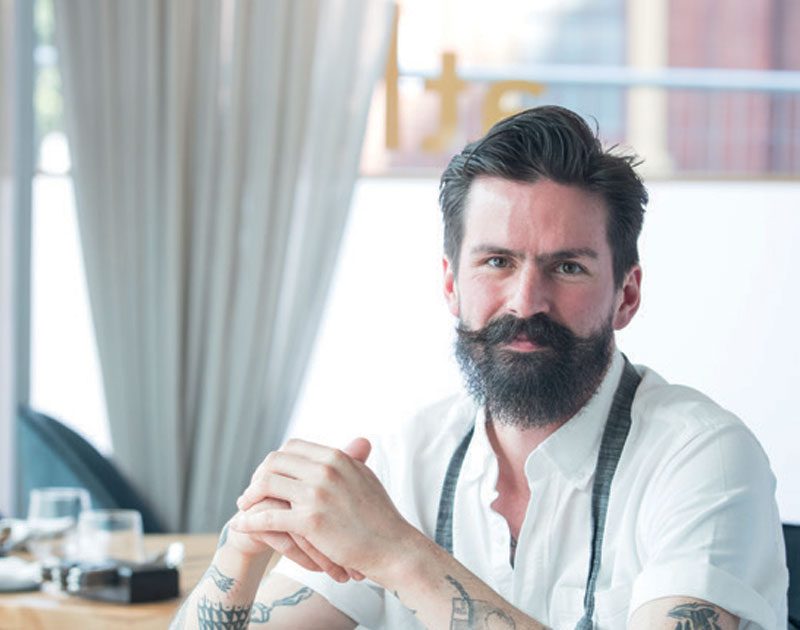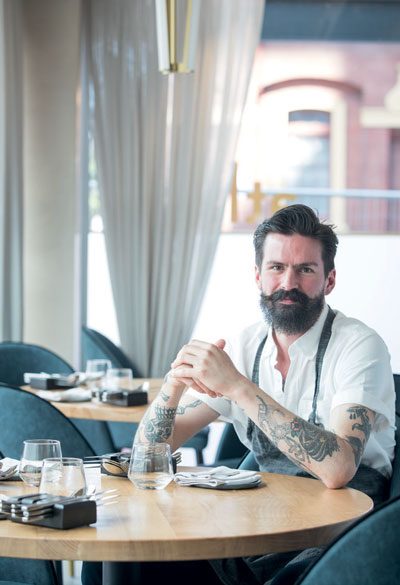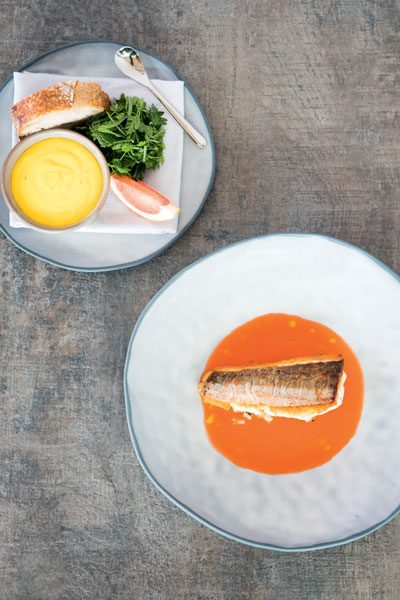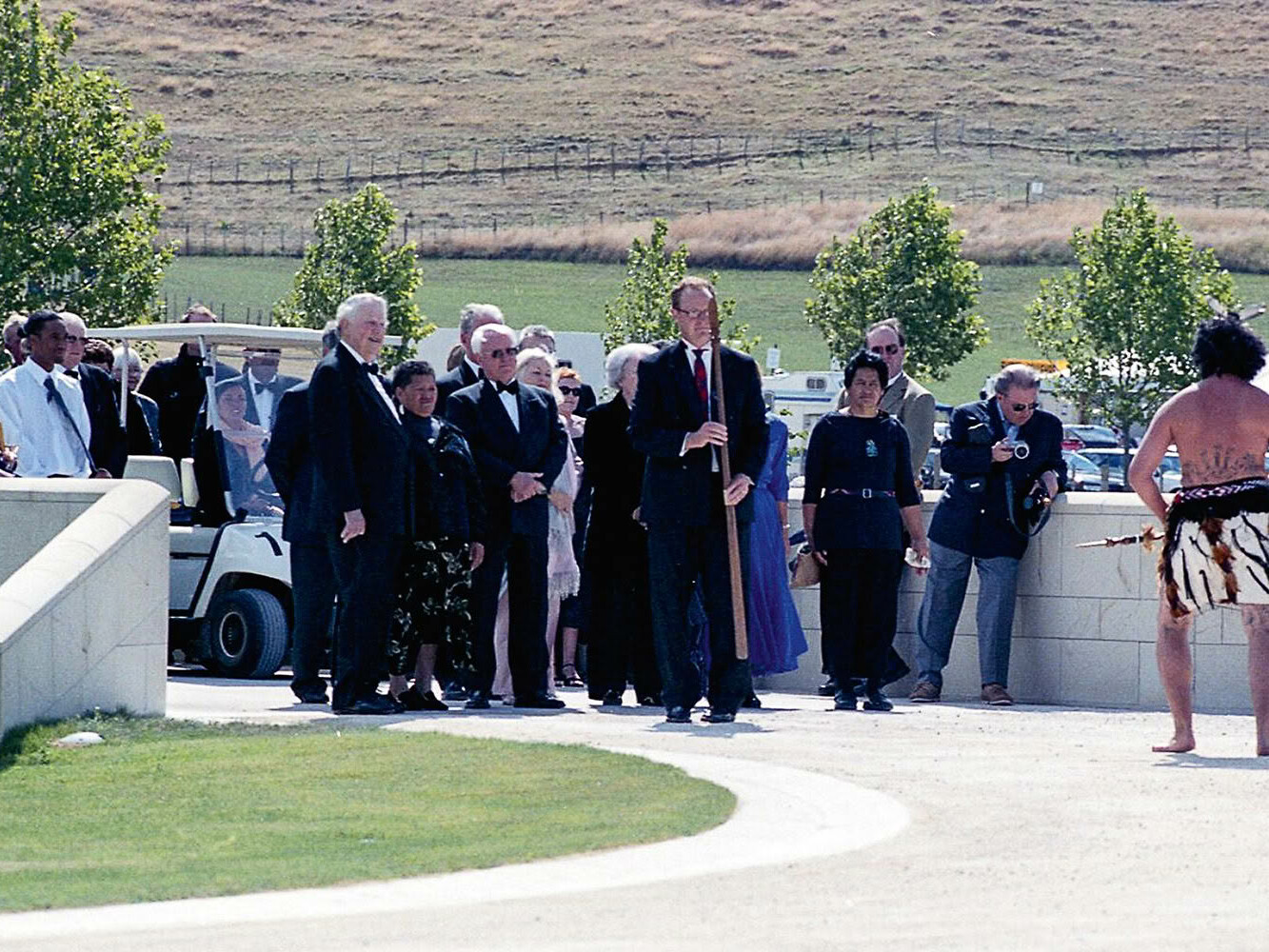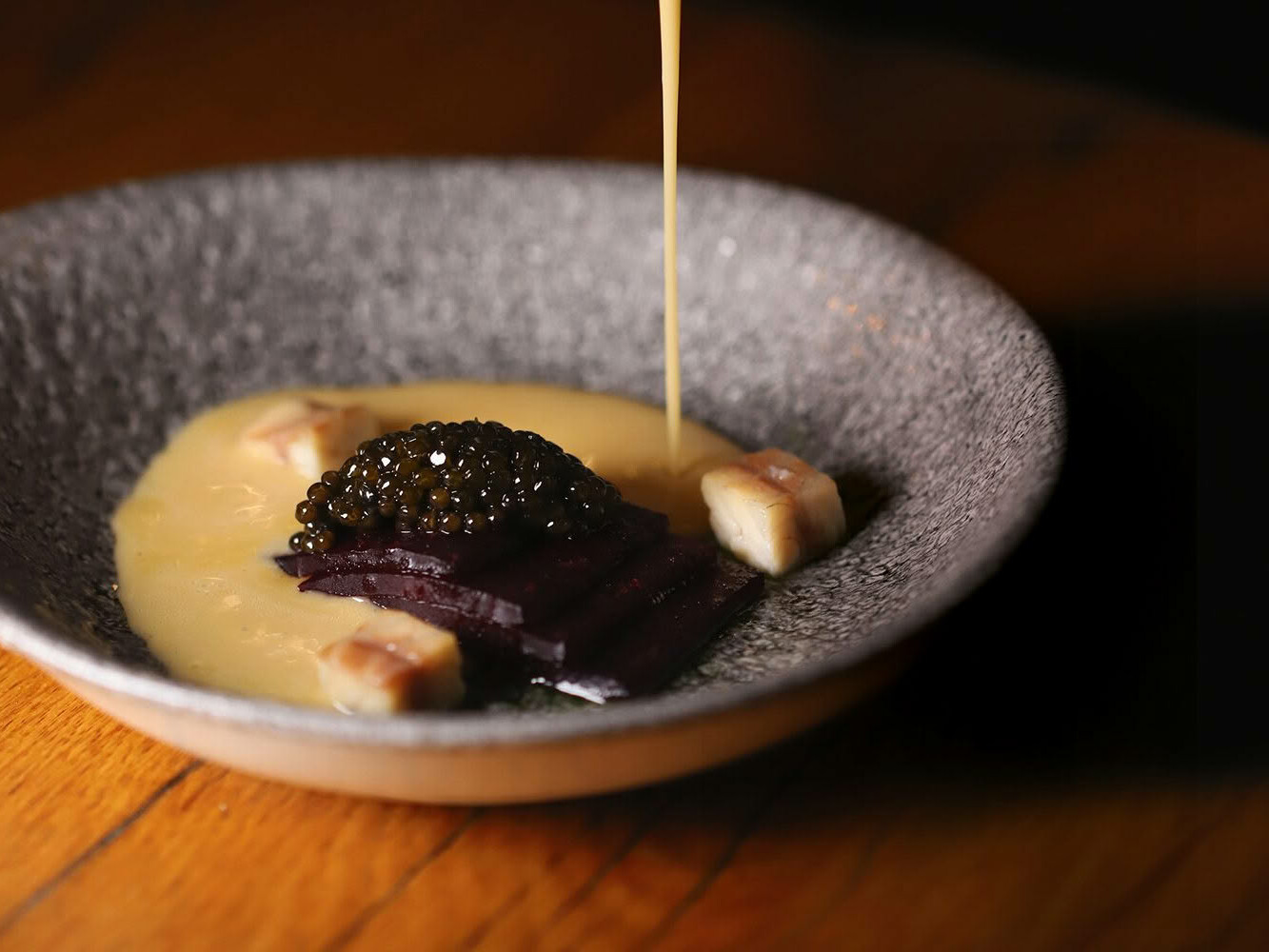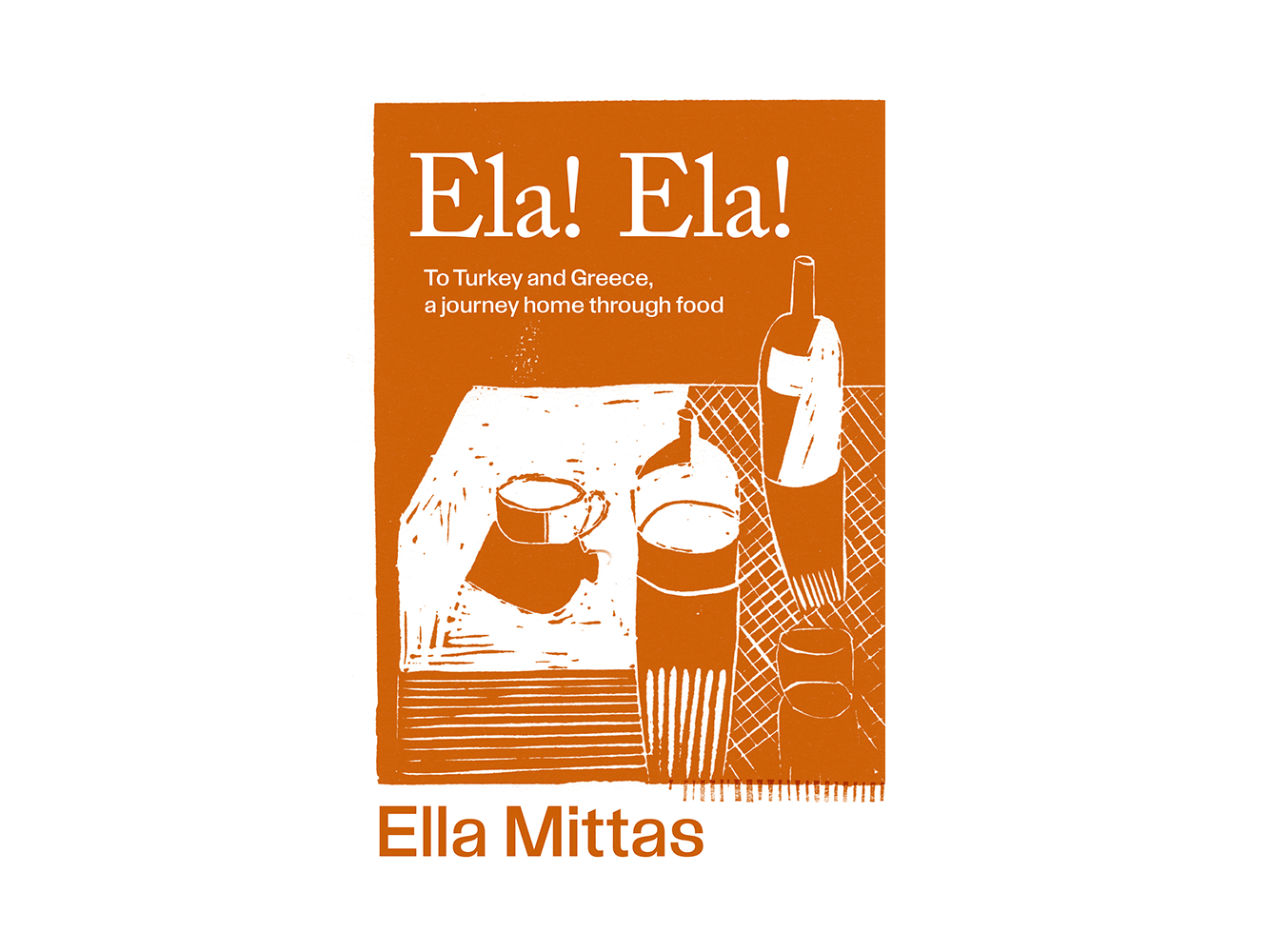Hemming in atlas on one side is the Duncan Cotterill law firm and on the other side the giant Deloitte tower, both of which should supply this posh new restaurant with its natural clientele.
Possibly Atlas’ owners had this target market in mind when, following the shock closure of fine-diner Whitebait in May 2019, they head-hunted head chef James Pask and most of his kitchen team in preparation for their new venture.
Its repertoire, while ethically sourced and locavore, is defiantly omnivorous. Rather daringly, there’s no vegetarian main, let alone anything marked gluten-free or vegan. Tofu, spirulina and jackfruit ‘meat’ are notable by their absence.
A chart at the head of the menu lists the distance of various ingredients from their source. The wagyu comes in at 297km, while the cultured butter is listed at 0 km, since it’s churned in-house and served with local breads. If the malted butter was intriguing and delicious, then the butter mixed with whipped wagyu fat and aged parmesan proved fabulously inventive.
Perhaps understandably, Pask rejects the unfashionable label of fine dining, pointing out that it is possible to dine here for $70 a head. True, but just don’t order the $80 whole Chatham crayfish tail, succulent and tasty, with Champagne and caviar beurre blanc.
And choose prudently from their 376-strong wine list, which vies with Noble Rot’s as the most exclusive in Wellington. It includes three vintages of Château Margaux and a $3900 Domaine Leroy Clos de Vougeot Grand Cru.
Abandon your wine-matching decisions to sommelier Yong Yan however, and you may well discover a delight from an obscure corner of the wine world. For example, a Tinta Barocca from from the Sadie Family in South Africa, simultaneously fruity and meaty, was intended as a pairing both for the crayfish tail and for Atlas’ signature wagyu rump cap.
Cooked in a combi oven for 14 hours, this beef nevertheless emerges still delectably pink, and is served with unctuous nuggets of bone marrow, a textbook-perfect, spoon-coating Bordelaise and braised beef cheek cooked with liquorice and cauliflower ‘couscous’. It’s gorgeously old school and decadent.
A fried fillet of line-caught gurnard, served over a bed of crabmeat with a crayfish bisque, amounted to a cleverly deconstructed bouillabaisse: on a separate plate, among a salad of fish-friendly herbs (dill, chervil etc) and some wedges of ruby grapefruit, was a small bowl of Marseilles-style rouille, scented with saffron.
From the raw bar, storm clams, dressed with olive oil and served with elderberry ‘capers’ (sweet pickled buds), were thinly sliced in order to ameliorate their inherent toughness. While I still believe that scampi are best simply grilled with butter to bring out their sweetness, it was interesting to experience the creaminess of these raw tails, dressed with lime kosho and dotted with the tiny green juice sacs of Australian finger lime.
White truffle, porcini, crème fraîche, hazelnut cake would appear to blur the line between savoury and sweet, but in fact the crème fraîche had been made into an ice cream, and the truffle and porcini flavours were only faintly there. Hazelnut cake and a portion of oozing honeycomb conclusively murmured ‘dessert’.
Waiting staff are eager and obliging, without being intrusive, and all seem to have a detailed knowledge of the menu. The vibe is plush in a restrained, Scandi way. Soft lighting, padded dining chairs and comfy banquettes in pastel greens and blues invite leisurely dining and, although tiles cover the floor, angled ceiling panels ensure muted acoustics.
The distance between tables is ample, so whether you want to classify Atlas as fine dining or simply smart casual, it’s still an ideal place to cinch that business deal, or to sit your beloved down with a glass of Bollinger and pop the question. DAVID BURTON
ADDRESS: 36 Customhouse Quay, Wellington
LUNCH: Wed – Fri
DINNER: Mon – Sat
MAINS: $34 – $80
CONTACT NUMBER: 04 471 1313
WEBSITE: atlas-wellington.co.nz
SCORE: 16 / 20
SEE MORE FROM CUISINE
Suculent where the sauce is the soul
As in any thriving city, hotspots come and go and with so much to…


